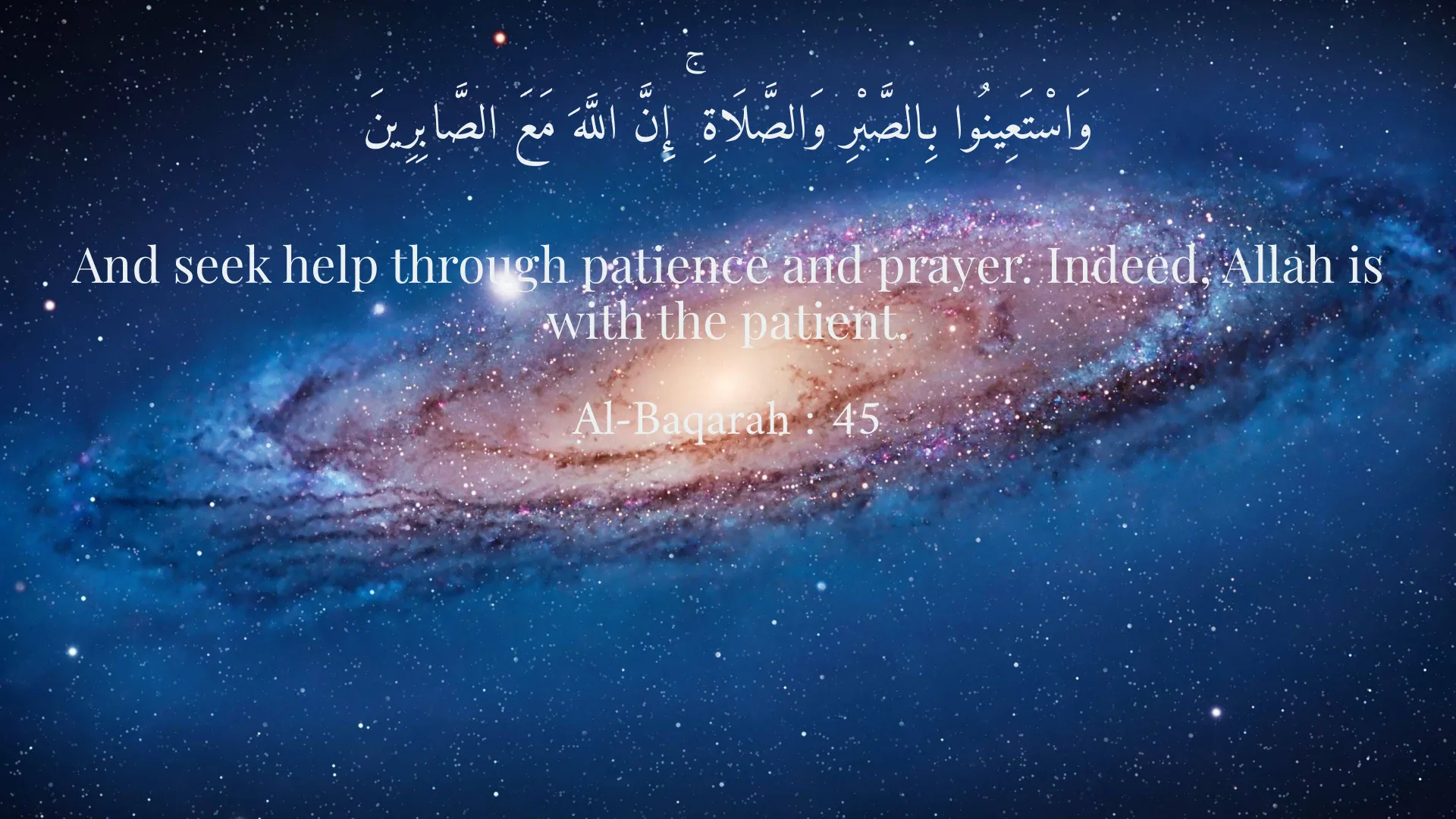Quranic Answer

Worship is one of the essential elements in the lives of Muslims, deeply ingrained in their daily routines and spiritual practices. The significance of worship is frequently highlighted in the Quran, which serves as the foundational text of Islam. Worship establishes and strengthens the relationship between man and God, acting as a medium through which believers can express their devotion, gratitude, and supplication. However, the impact of worship extends beyond a mere ritualistic practice; it plays a crucial role in psychological health, promoting emotional balance and an improved quality of life. In Surah Al-Baqarah, verse 45, Allah instructs believers to approach Him through prayer and patience. This directive emphasizes that worship can be a powerful tool for alleviating stress and anxiety. Engaging in daily prayers provides practitioners with not just the time to connect spiritually, but also an avenue to express their worries and burdens. Regular engagement in prayer fosters a sense of routine and structure in life—two key ingredients for mitigating feelings of chaos. When individuals take the time to acknowledge their creator, they can experience a greater sense of peace and relief from life's pressures. In essence, worship is a refuge amid the storms of everyday life. In the hustle and bustle of contemporary society, believers may often find themselves overwhelmed by various forms of stress—be it work, family responsibilities, or societal expectations. The act of turning towards God through prayer becomes a sanctuary where one can feel listened to, understood, and comforted. This aligns with the psychological concept of mindfulness, where individuals focus their thoughts and feelings in a non-judgmental manner. Worship encourages mindfulness as it compels individuals to reflect on their lives and the state of their hearts—focusing on the present moment while seeking connection with the divine. Besides acting as a stress reliever, worship instills hope and tranquility within individuals. In Surah Adh-Dhariyat, verse 56, it is stated, 'And I did not create the jinn and mankind except to worship Me.' This foundational perspective posits that the very purpose of existence is intertwined with worship, adding meaning and significance to human life. When believers engage in worship, they embark on a journey of self-discovery and self-awareness. Understanding one's purpose in life can lead to greater contentment and fulfillment—critical elements of psychological well-being. Furthermore, worship refines one’s thought processes, steering individuals toward positivity and away from negativity. In an age where negativity can often feel overwhelming—through the proliferation of bad news, societal tensions, and personal challenges—the act of worship serves as a recalibration. It enables individuals to focus on the blessings they have rather than the deficits. The practice of gratitude, a common element in many forms of worship, reinforces a positive outlook on life. Consequently, believers are likely to develop resilience against the adversities that life may present. Moreover, the communal aspect of worship further enhances psychological well-being. Engaging in collective worship such as congregational prayers brings a sense of belonging and community, fundamental human needs often underrepresented in modern society. Such gatherings allow believers to share their experiences, support each other emotionally and spiritually, and strengthen interpersonal bonds. This collective worship experience can create a support network, allowing individuals to overcome personal struggles and reinforcing a sense of unity among believers. The continuous connection with God through worship equips individuals with the strength and mental stability necessary to face life's challenges. It fosters a sense of dependence on a higher power while simultaneously cultivating self-reliance. Believers often find solace in the knowledge that they are not alone; their prayers and supplications are met with divine attention—providing reassurance and comfort in times of need. In conclusion, worship in Islam is not just an act of faith but a profound instrument for enhancing psychological health. Through prayer, reflection, and community participation, believers can manage stress, cultivate positivity, and achieve inner peace. The Quran's emphasis on worship—such as in Surah Al-Baqarah and Surah Adh-Dhariyat—underscores its fundamental role in human existence. By recognizing and embracing worship as a critical aspect of life, Muslims can forge stronger connections with God and themselves, ultimately fostering balance and improving their emotional well-being. In a world rife with challenges, the principles of worship can serve as resilient anchors, guiding individuals through life's unpredictable journey and nourishing their spiritual and emotional growth.
Related Verses
وَاسْتَعِينُوا بِالصَّبْرِ وَالصَّلَاةِ ۚ إِنَّ اللَّهَ مَعَ الصَّابِرِينَ
And seek help through patience and prayer. Indeed, Allah is with the patient.
Al-Baqarah : 45
وَمَا خَلَقْتُ الْجِنَّ وَالْإِنسَ إِلَّا لِيَعْبُدُونِ
And I did not create the jinn and mankind except to worship Me.
Adh-Dhariyat : 56
Short Story
One day, Aref, a young man, was searching for peace and balance in his life. He began reciting the Quran and engaging in prayers, and gradually he felt that tranquility filled his soul. With each prayer and remembrance of God, he felt the heavy burden of worries lifted off his shoulders. Through worship, Aref was able to overcome the challenges in his life and turned to gratitude toward Allah.